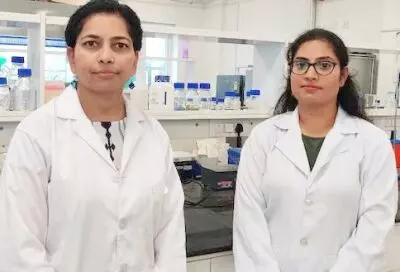
IIT team treats colorectal cancer using organic smart nanoparticles
text_fieldsNew Delhi: Researchers at the Indian Institute of Technology (IIT) Mandi have employed smart nanoparticles made of natural polymers to treat colorectal cancer because they release the drug in response to stimuli that are unique to the cancer spot.
According to research results published in the journal Carbohydrate Polymers, the team has created biodegradable nanoparticles from renewable resources that may release both hydrophilic and hydrophobic medicines with various anticancer mechanisms, hence decreasing the need for petroleum-based polymers.
"One of the driving interests among the material science and healthcare community performing interdisciplinary work is the development of biodegradable nanoparticles from renewable resources and designing them in such a way that they can release the drug in response to stimuli which are specific to cancer site only," said Garima Agrawal, Assistant Professor from the institute.
"The designed system should be capable of supporting drugs having different solubility in water. In this regard, the simplest approach that we followed for developing biodegradable nanoparticles is using chitosan, which is a naturally derived polymer, in combination with disulfide chemistry," Agrawal added.
Colorectal cancer is a devastating disease leading to increased mortality worldwide, and it is the third most common cancer in men and the second most common in women worldwide. It accounts for 8 per cent of all cancer deaths making it the fourth most common cause of death due to cancer in the world.
As per the study, the team developed redox-responsive chitosan/stearic acid nanoparticles (CSSA NPs) as drug carriers for both curcumins (hydrophobic; a component from turmeric that is used daily in food) and doxorubicin (hydrophilic) drugs delivery targeting colorectal cancer.
This approach of combining anti-cancer drugs having a different mode of anticancer action allows for the development of the systems for cancer therapy with enhanced efficacy, the researchers said.
With inputs from IANS
























